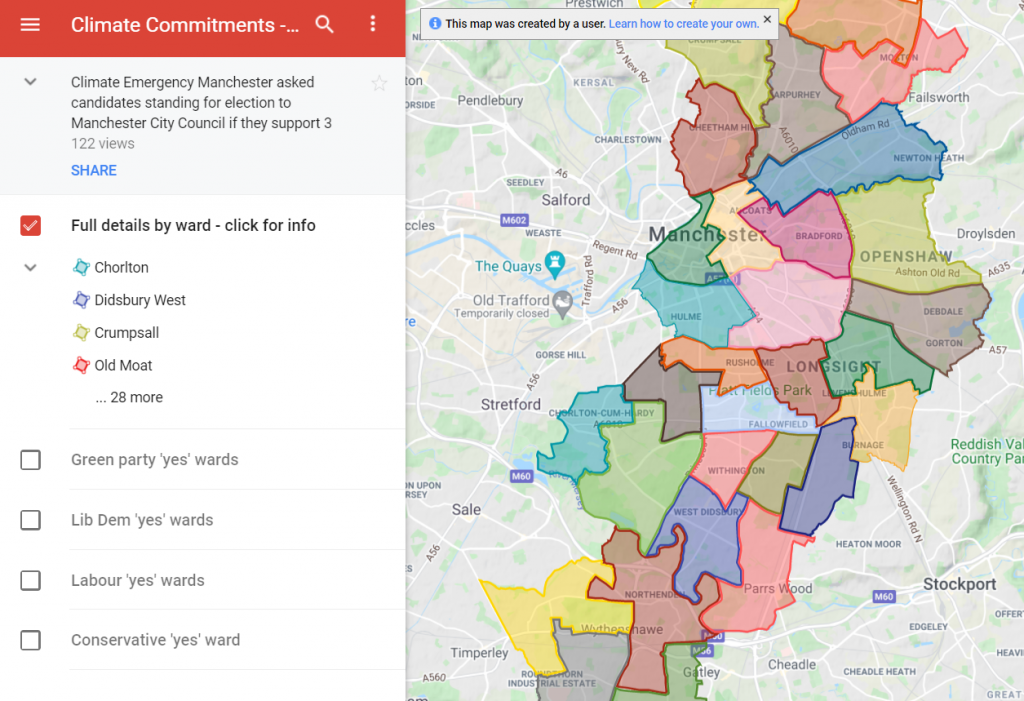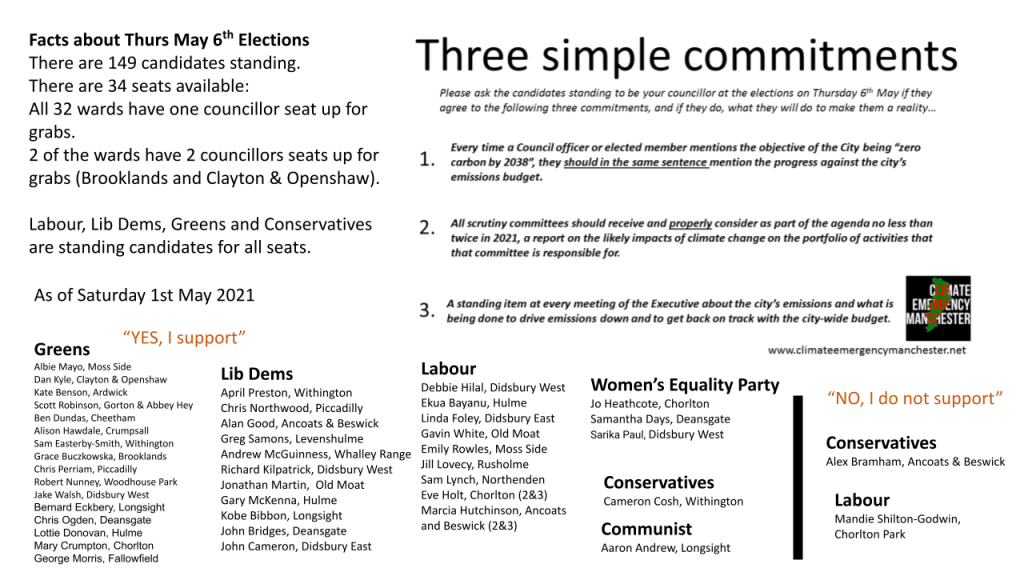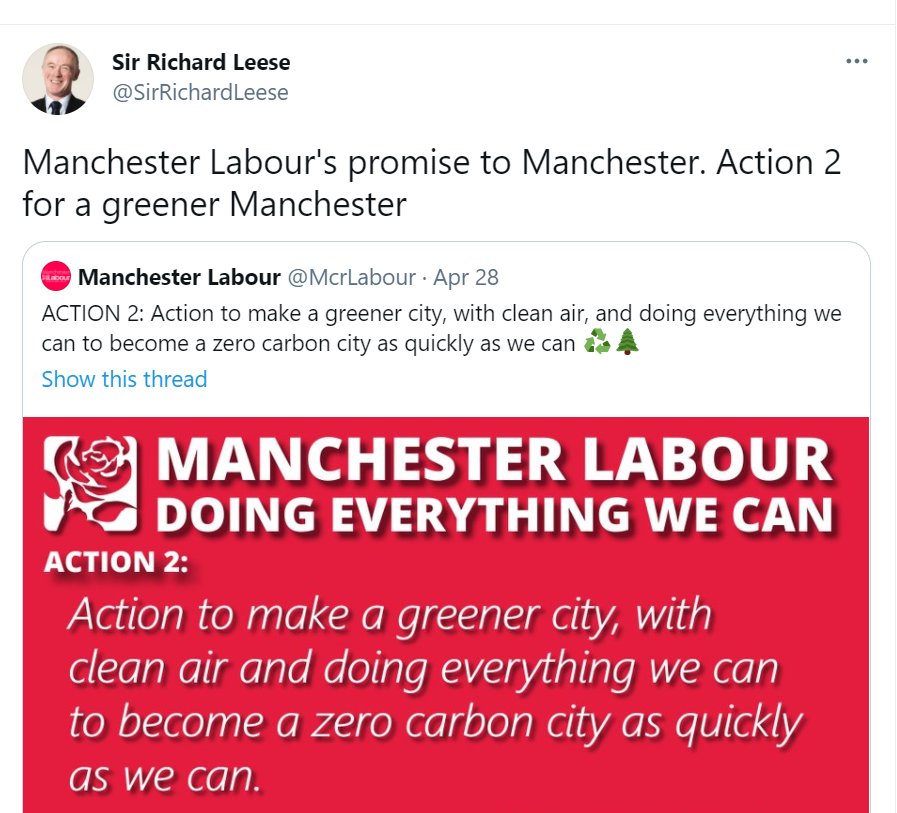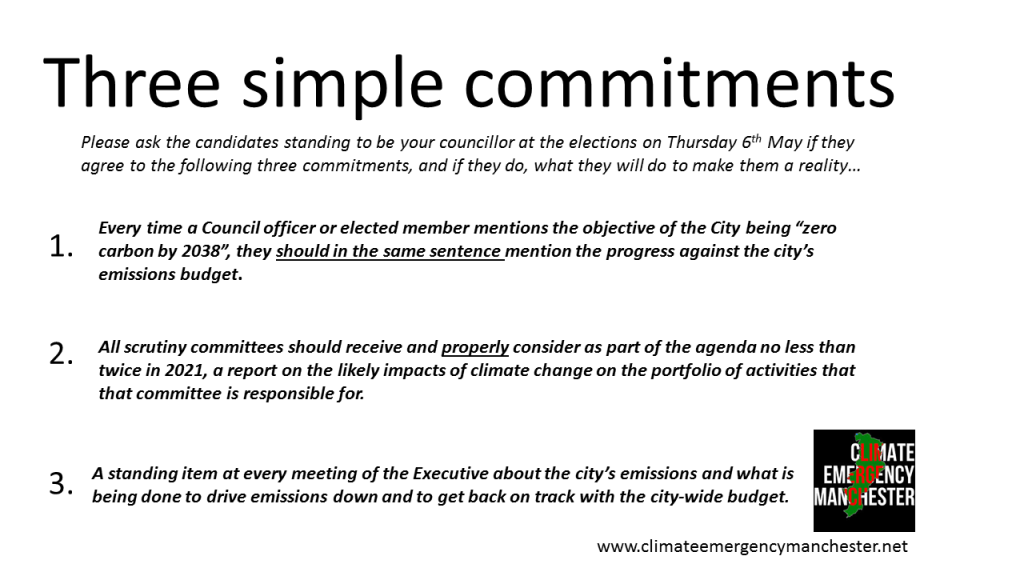Thursday is polling day, which will seal the fates of 149 candidates in Manchester who are running for 34 opportunities to serve as a councillor for the next 4 years. The successful candidates will be those who receive the most votes from the electorate, which is split across 32 wards. In England’s first-past-the-post system for local elections, the winner in each ward takes the prize. Runners-up and others gain no representation.
CEM is non-partisan, but we have a stake in the election process because we aim to put consistent and substantial pressure on Manchester City Council, including during the periods of elections to it. CEM’s objective is to promote responses to climate change in Manchester that are rapid, radical and that do not harm the poorest and marginalised in society.
In this election period, we wanted to help inform the public about what was at stake, and we did this first of all through an election hustings. Then we sought assurances from candidates that they would support simple, low-cost commitments on climate change. We believe these commitments, if implemented, would help to foster honesty, scrutiny and leadership in Manchester’s response to the climate crisis, which have been sorely lacking.
Dozens of candidates have pledged to support these commitments (you can see who has supported the commitments, and who has not done so, on this map).

Many candidates who we believe have a good chance of actually being elected under the first past the post system are also supportive – including eight Labour party candidates, seven Lib Dem candidates, and a Green party candidate – and we look forward to working, over the years ahead, with those who get elected as well as many others, so that we can make these pledges promoting honesty, scrutiny and leadership on the climate emergency come closer to reality. (And Here’s how we plan to start, in this month of May, and how you can get involved)

What has been more disappointing is the lack of response from many Labour candidates who have declined to reply to our extensive efforts to contact them about these three commitments on climate action. We know that Labour will win first place in the great majority of wards, so we at CEM have to pay close attention to who these Labour candidates are, and what they say. We have gone to greater lengths to contact them than we have for other candidates with lesser electoral prospects. We decided to write, via post, using recorded delivery, to 19 Labour candidates about the climate pledges – replies? Alas, zero. That’s zero replies, not zero carbon.
Manchester Labour officially promised last week to do “everything we can to become a zero carbon city as quickly as we can”. If the emphasis in this carefully worded pledge is everything – i.e. everything that we can – then it must surely be possible to embrace these climate commitments and more. But if the pledge emphasis is to be hugely limited by a narrow definition of the possible – i.e. everything that we can – which we have been too sadly accustomed to, then it may help explain many Labour candidates’ reticence when they declined to reply to our requests for a simple comment about some specific, procedural measures that the Council could take when responding to the climate emergency.

We invite the non-responsive, undeclared Labour candidates to make up their minds. Labour candidates who have not yet replied, regarding your party’s pledge on zero carbon, what more should we expect from you in the years ahead if you do get elected? Do you support doing everything we can? Or do you prefer to set limits and say too hard and pretend we cannot? Please send your signal via the words ‘yes’ or ‘no’ to these three climate commitments, asap.

Robbie is a core member of Climate Emergency Manchester.

1 thought on “As the local elections approach, what are the limits of the possible?”